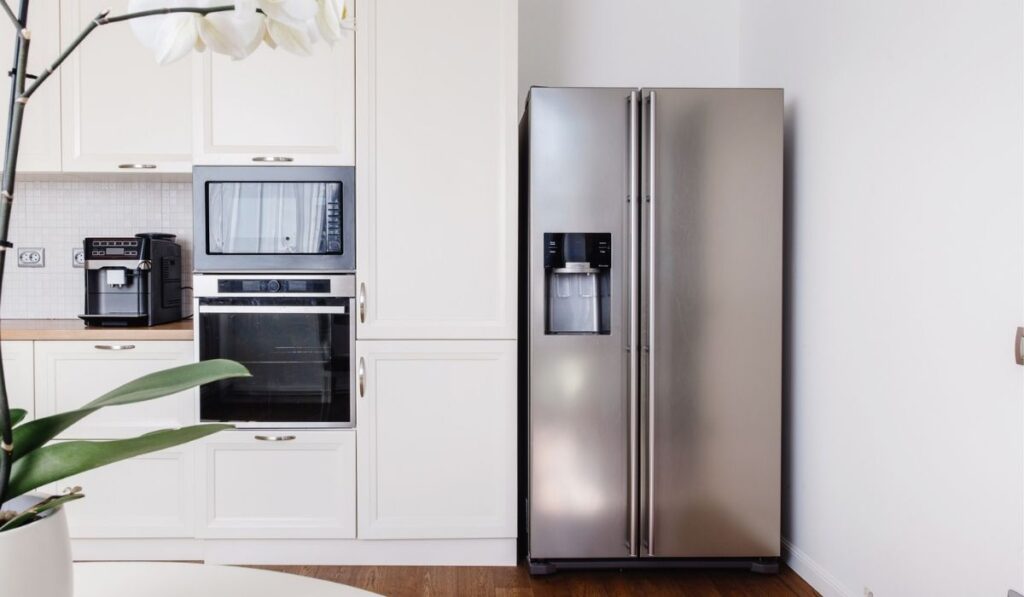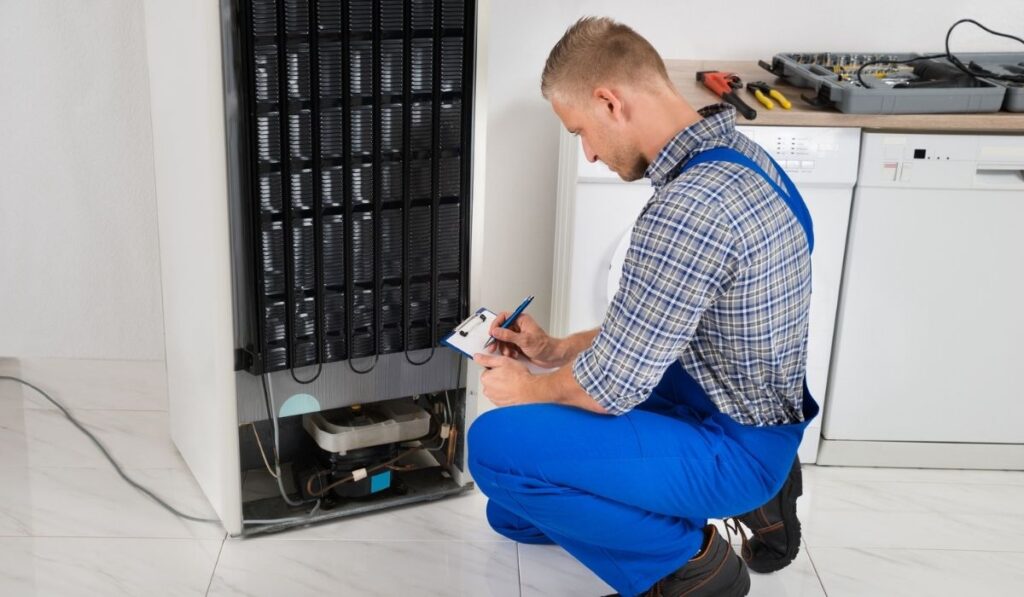Electrical practices that involve installing electrical products and their wiring can result in dangerous outcomes if the proper guidelines are not followed. For example, one of these standard procedures many people misconstrue is that a refrigerator has to be on a separate circuit. But then, is it true? Should a refrigerator be on its independent circuit?
Definitely! The current wiring in your house is most likely unable to handle the additional power of the refrigerator. Therefore, you should install your refrigerator on a 15-20amp dedicated 120-volt circuit. However, you can connect another appliance to the circuit if it’s not heavily loaded.
This procedure is not only advised for the refrigerator alone but also for different appliances. However, it’s a fact that many homes still do not adhere to these guidelines. Many people ask, “Of what consequence is it to allow heavy appliances to share a circuit?”
Can a Refrigerator Share a Circuit?

Yes, but it’s not highly recommended. Refrigerators are often described as heavy-duty loads, and they tend to spike up from time to time. However, if you can find an appliance that is lightly loaded and can draw for less than 3 hours at a go, then you can connect them on the same circuit. That is as long as the total load doesn’t exceed the circuit breaker’s rating.
Why Does a Refrigerator Need a Dedicated Circuit?
The main reason a refrigerator needs a dedicated circuit is that the circuit helps to protect the fridge from a power outage when other circuit breakers are tripped.
With a dedicated circuit breaker for your refrigerator, you don’t have to worry about other appliances tripping the circuit breaker and ultimately cutting off the power connecting to your refrigerator. This will help to further help you in preserving whatever you have in your refrigerator.
In fact, there is a requirement in the national electrical code (NEC) that states that “Dedicated circuits for major electrical appliances such as refrigerators, stoves, washers, dryers, and electric water heaters because they ensure that appliances can operate safely without overloading the home’s electrical system.”
What Appliances Requires a Dedicated Circuit?
Many appliances require a dedicated circuit in your house, including:
- Refrigerators
- Wall ovens
- Electrical range
- Washer/Dryer
- Large Microwaves
- Large free standing Freezers
- Dishwashers
- Garbage disposals
- HVAC units
- Furnaces
- Water heater
- Hot tubs.
Should You Do It Yourself or Hire a Professional?

A slight mistake in electrical installations can cause power surges and arc faults and even lead to a fire outbreak. That’s why it’s advisable always to employ the services of a professional electrician to handle the electrical wiring around your house. This way, you can ensure that the wiring around your home is done according to standard procedure.
Can You Plug a Refrigerator Into an Extension Cord?
Unlike small appliances that are safe to be plugged into an extension plug, a refrigerator is a colossal appliance that requires a lot of energy to run, and most extension cords can’t take on the job.
Plugging your refrigerator into an extension cord is very dangerous as the action has terrible consequences. Some of these potential consequences include:
- Fire hazards can occur due to the refrigerator having a higher wattage than the rating of the extension cord.
- Performance & overheating issues later causes the refrigerator parts to burn and ultimately reduce their lifespan.
- Damaged wiring since the wiring is now left out in the open and not in the wall. This makes it prone to liquid spillage and increases the chances of something heavy falling on it.
However, if you must plug a refrigerator into an extension plug, then there are certain conditions you must follow. These conditions include that the extension cord must have:
- The correct gauge (wire thickness)
- The perfect length that is enough to reduce the voltage
- The correct power to prevent fire hazard
- Corresponding plug types.
Do Refrigerators Require a GFCI Outlet?
It definitely cannot hurt to plug your refrigerator into a GFCI outlet. It’s even more necessary to use it when your refrigerator is situated in a place prone to water or moisture.
The GFCI can monitor outgoing and incoming currents, and when it senses excess current, it trips the fridge and cuts off the power flowing to it. Some people do not want a GFCI outlet because it often trips for different reasons like the quality, wiring, and the quality of GFCI outlets.
Therefore, GFCI outlets can serve as an extra form of protection for your refrigerator. However, it’s unnecessary as even the NEC doesn’t require it.
